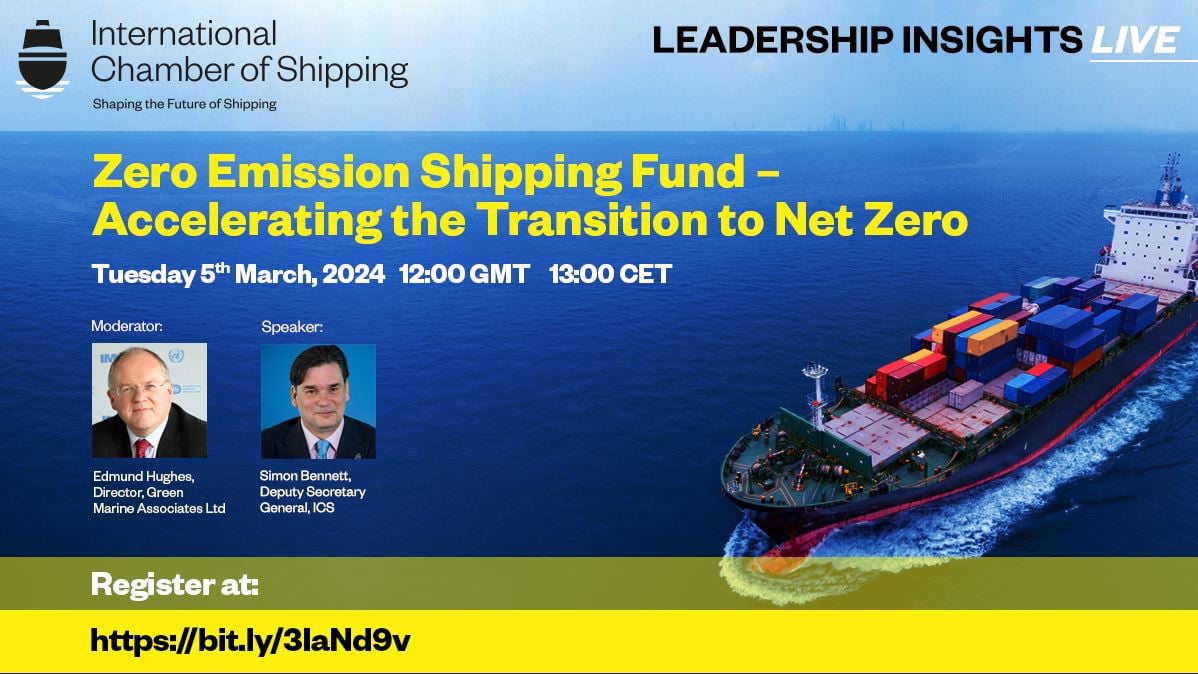Changes to the UN Law of the Sea
A UN initiative aimed at regulating fishing, energy and economic activity on the High Seas could have unintended consequences for shipping
ICS supports the objectives of negotiations at the United Nations to protect the ocean, while seeking to prevent unintended consequences for the future regulation of shipping.
For the past three years, ICS has represented the world’s shipowners at the United Nations (UN) in New York in a negotiation to agree a new legal instrument for the protection of the ocean.
If adopted, this will provide protection to marine Biodiversity in sea areas Beyond National Jurisdiction (BBNJ). This means the High Seas beyond territorial waters and the Exclusive Economic Zones (EEZ) of nations over which a state has special rights regarding the exploration and use of marine resources.
Environmental protection for the High Seas
In September 2018, the UN convened the first session of a Diplomatic Conference to adopt a new implementing agreement to permit future development of regulation for the environmental protection of the High Seas.
In co-operation with IMO, and the Governments of Norway and the Marshall Islands, ICS Chairman Esben Poulsson participated in a special event to explain how shipping is already comprehensively regulated by IMO, including its activities on the High Seas.
Protection of the ocean is of utmost importance and ICS fully supports the objective of these important UN negotiations, because the oversight of other ocean activities especially on the High Seas is not so well developed.
Nevertheless, given that the shipping industry is regulated by IMO very effectively, ICS is working hard to ensure that this UN work will not have unintended consequences for IMO’s authority.
The second session of the Diplomatic Conference took place in New York in April 2019 to consider options for detailed legal text. ICS attended these discussions working closely with IMO.
A shipowner’s activities are never beyond national jurisdiction of the flag state, even when its ships are operating on the High Seas. There are around 80,000 merchant vessels engaged in international trade, operating outside of territorial waters, which must all adhere to IMO rules throughout the ship’s voyage, including the MARPOL Convention for pollution prevention.
Comprehensive regulation in place for shipping
As well as being overseen by a rigorous system of flag state enforcement, compliance with IMO regulations is also subject to oversight by a sophisticated regime of Port State Control inspection, co-ordinated via regional agreements within a global IMO framework.
A case in point is the new ban on the carriage of non-compliant low sulphur fuels (sulphur emissions into the atmosphere being a potential source of ocean acidification) which came into force in March 2020 and which ensure that the new IMO global sulphur cap will be complied with by all ships worldwide, even when a ship is operating on the High Seas.
While shipping is not the main focus of this UN initiative, which is primarily aimed at strengthening the regulation of deep sea fishing, energy production and new economic activities such as seabed mining, this work is likely to lead to the establishment of Marine Protected Areas (MPAs) on the High Seas.
In order to ensure that sectors such as fishing cannot argue for exclusion from the new agreement on the grounds (like shipping) that there are already other mechanisms in place to regulate them, it is currently proposed that the UN agreement should be as comprehensive as possible in scope. This means that it may also apply to international shipping, even though there is currently no suggestion that the industry is insufficiently regulated.
There is a potential risk therefore that this UN work could have unintended consequences and adversely impact on shipping, interfering with principles such as freedom of navigation, principles governing IMO pollution liability Conventions. It could also potentially upset the current balance that exists between the rights and obligations of flag states, coastal states and port states.
Issue cuts across a range of agencies
One of the challenges facing ICS is that most of the national UN negotiators are drawn from foreign affairs, environment and ocean ministries which are not necessarily closely engaged in the work of IMO. ICS therefore encourages its member national shipowner associations to ensure that government representatives in New York are fully briefed by their shipping and transport ministries.
The UN negotiations are, however, still at a relatively early stage and the issues are complex because, in addition to IMO, the ocean is already regulated by a large number of different UN and regional agencies.
For the moment it appears that most of the key governments (as well as the European Commission, which is co-ordinating the views of EU States) are broadly aware of the importance of ensuring that any new measures that could potentially affect shipping should not be taken forward without the full involvement of IMO. None of the key players in the UN negotiations seem to question the ability of IMO to develop detailed provisions for shipping in Marine Protected Areas should it be decided to apply these on the High Seas. IMO already has extensive experience of implementing similar measures at the request of IMO Member States (which are also signatories to UNCLOS).
IMO has a key role to play
Nevertheless, it will be important for the shipping industry to be vigilant because the scope of these discussions is wide. It was previously understood that there was little appetite among governments, or existing UN agencies with responsibility for the ocean, to establish a new UN body to administer the new UNCLOS implementing agreement. However, this is an option that remained on the table for the negotiations in April 2019.
On balance, ICS would prefer that future decisions that might emerge from the agreement – such as the designation of High Seas Marine Protected Areas – should be determined by regular Conferences of Parties to the agreement, possibly administered by the UN Division of Ocean Affairs and Law of the Sea.
Whatever is ultimately decided in New York, it is most important that the detail and appropriateness of any measures that might apply to shipping within High Seas MPAs should still be determined by the relevant specialist agency, in this case the IMO. (By way of example, this might include the development of any special navigational measures for international shipping to avoid harm to rare species of whales.)
It is further suggested that such important decisions, which could affect the efficient movement of global trade, would have to be based on proper scientific analysis, e.g. with input from bodies such as GESAMP (the Joint Group of Experts on the Scientific Aspects of Marine Environmental Protection).
However, because of legitimate and serious concerns about environmental damage to the ocean being caused by activities other than shipping, as well as high level geopolitical issues relating to governance of the High Seas, these complex UN negotiations are expected to take on an increasing political dimension prior to their scheduled completion in 2020.
Related content

Alternative fuels revolution an opportunity to boost trade resilience

Battery recycling process holds promise for sustainability improvement

Captain Abdulkareem Al Masabi: Shipping’s shared prosperity
